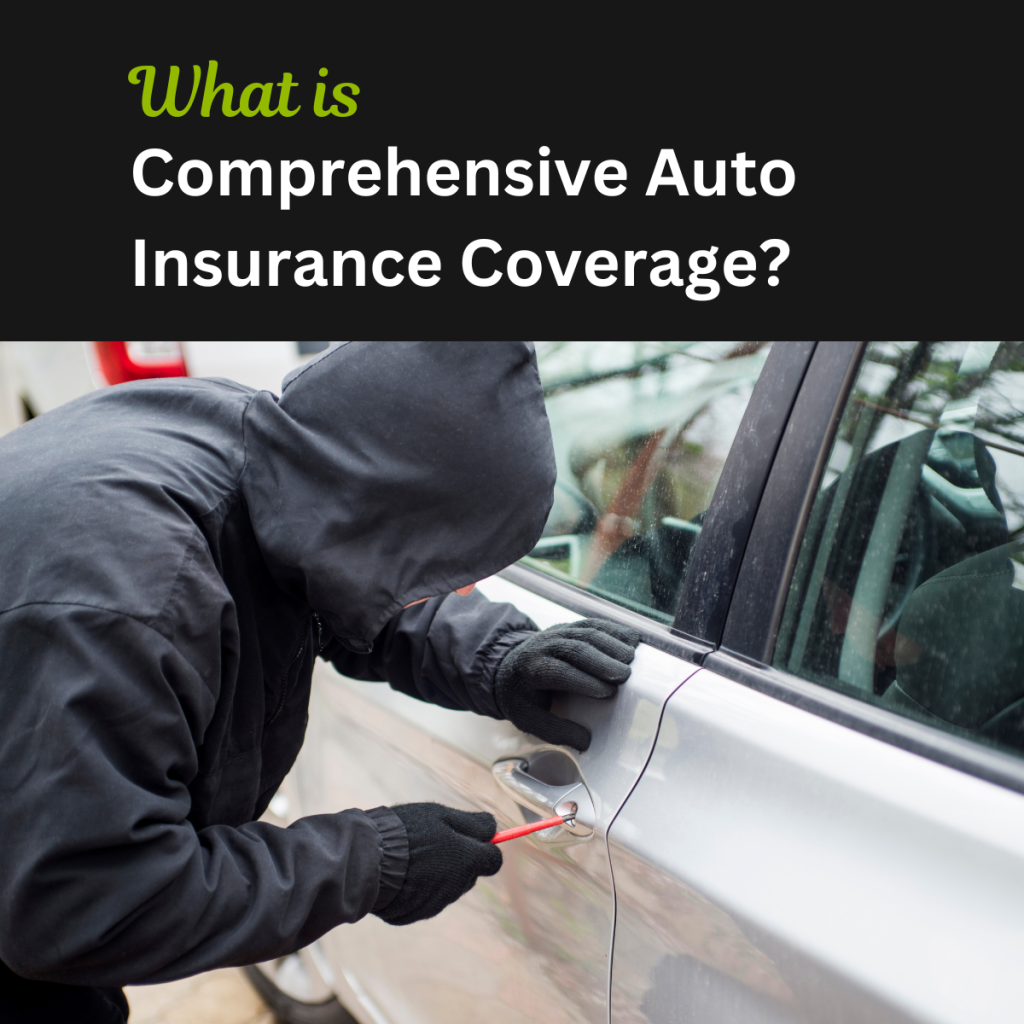
What is comprehensive coverage?
Comprehensive auto insurance is an optional coverage that pays for damages not related to road accidents (with one exception we’ll explain in a second). Instead, it covers scenarios like natural disasters, theft, and other unexpected incidents. It’s sometimes referred to as “Other than collision”. I know, clever.
Coverage specifics
Comprehensive, along with collision, fall under the category known as Physical Damage. Most insurance companies will allow you to choose comprehensive and not collision, and vice versa. For example, maybe you want car storage insurance and only want comprehensive coverage. In some cases, you can do that.
This coverage typically includes protection against:
- Hailstorms
- Floods
- Earthquakes
- Theft
- Fire
- Vandalism
- Animal collisions (This is the one exception. It’s collision while driving but still falls under comprehensive coverage.)
- Certain damage to windows
Is there a deductible?
It will come with a deductible. This is the amount you have to pay before your insurance company covers the rest of the cost from the damages. Most commonly we see $500 and $1,000 deductibles although they can be much lower or higher.
Some companies even offer diminishing deductibles which lowers your deductible automatically as a reward for not having any claims for a certain amount of time. Not a bad idea to add that feature a few years before you have teen drivers.
Who needs comprehensive auto insurance coverage?
While comprehensive insurance is optional for those who fully own their vehicles, it’s typically required if you have a loan or lease on your vehicle. It’s especially recommended for newer or high-value vehicles due to the potential for significant loss. Consumer Reports says the average cost of a new car is now over $48,000.
If you don’t have any coverage restrictions it really comes down to your risk tolerance. How much are you willing to self-insure? Is this your daily driver car and therefore would affect your transportation to work or school? Do you have an emergency fund already set aside for repairs to get your car back on the road?
Costs and claims
Comprehensive coverage will add cost to basic liability only insurance. It’s hard to say what your exact cost will be as there are many factors such as the value of your vehicle, location, driving history, credit rating and more.
The Insurance Information Institute says the average payout for a comprehensive claim in 2022 was approximately $2,738. Although that is the average, we would recommend planning for a total loss. In other words, if your vehicle would be $20,000 to replace, you have two options:
- Purchase insurance coverage
- Be willing to pay it out-of-pocket.
Pros and cons
Pros:
- Provides extensive coverage for a variety of unpredictable events.
- Ideal for newer cars, ensuring coverage up to the vehicle’s current market value.
Cons:
- Additional cost over minimum required insurance.
- Diminished benefits for older cars with lower market value.
Making the decision
When deciding on comprehensive car insurance, consider the age and value of your vehicle and your financial ability to handle unexpected repairs or replacements. While it adds to the insurance cost, the peace of mind and financial protection it offers can be invaluable in the face of unforeseen events.
Frequently asked questions
Comprehensive auto insurance is an optional coverage that pays for damages not related to road accidents such as hailstorms, floods, earthquakes, theft, fire, vandalism and more.
Yes. Most commonly we see $500 and $1,000 deductibles although they can be much lower or higher.
While comprehensive insurance is optional for those who fully own their vehicles, it’s typically required if you have a loan or lease on your vehicle.
It’s hard to say what your exact cost will be as there are many factors such as the value of your vehicle, location, driving history, credit rating and more.
Related Articles

Best Car Insurance When Moving Out
So, it’s time to leave the nest and get your own insurance on your car. As you could expect, you…

How to Get the Cheapest Car Insurance Rate
Nobody wants to overpay for their car insurance and we all want to know whether or not we’re getting a…

Should You Buy Gap Insurance?
What is gap insurance? Gap insurance, sometimes referred to as Loan/Lease coverage, is an optional coverage you can add to…

Student Away at School Discount
If you have a child attending school far from home, you may be eligible for an auto insurance discount known…

Car Insurance Tracking Devices. Should I?
Almost every insurance company now offers significant discounts if you allow them to track your driving habits and you score…

Will my credit rating change my insurance rates?
I was recently asked this question by one of our Partners Insurance clients, and thought I would share the answer here…
